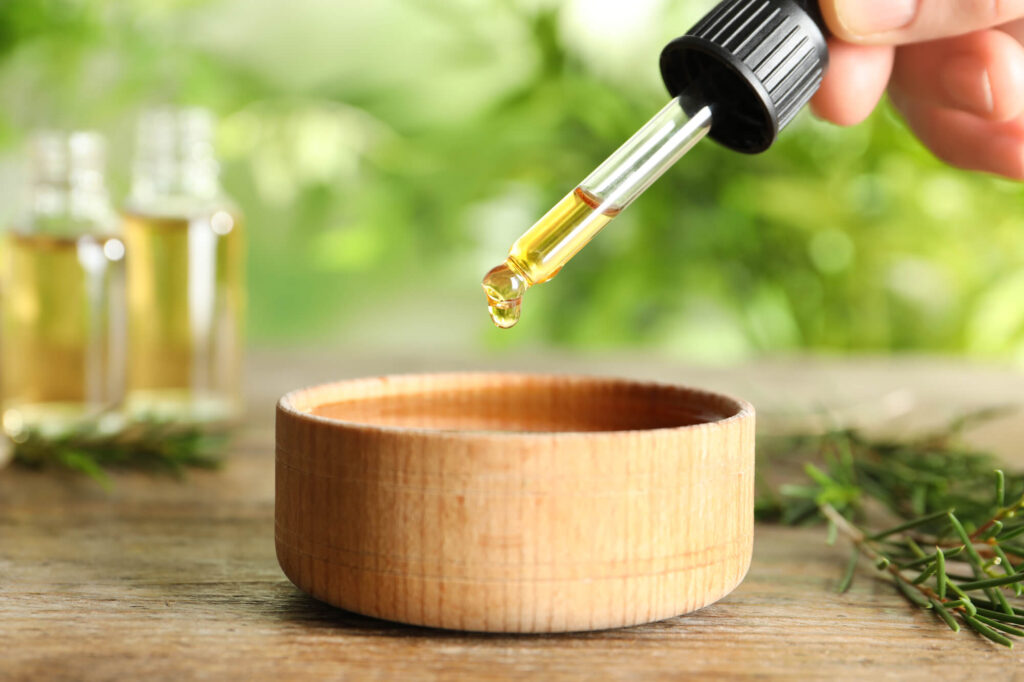Before you apply tea tree oil to your scalp, you should be aware of its side effects. If you have never used tea tree oil before, you might not be aware of its benefits. In this article, we will give you some helpful tips about using tea tree oil on your scalp and hair.
Side effects of tea tree oil on hair
A popular natural remedy, tea tree oil can help treat scalp-related conditions, such as dandruff. This oil has anti-inflammatory properties, so it can soothe the scalp and reduce excess shedding. In addition, it is antibacterial, so it can improve the health of the skin.
Dandruff is a common skin condition that leads to white flakes of dead skin on the scalp. It can be caused by a variety of conditions, including excess sebum production or a fungal infection called Malassezia. Applying tea tree oil on a regular basis will help keep your scalp clean and prevent dandruff from developing.
Before you begin using tea tree oil, be sure to consult your doctor. You should never apply concentrated tea tree oil directly to the skin. It can cause irritation or a reaction in some people. For this reason, you should only apply the oil on your scalp or hair if you are sure that it will not irritate the skin.
Adding a few drops of tea tree oil to your usual shampoo is an easy way to improve the condition of your scalp and hair. It can be blended with carrier oil like jojoba oil or olive oil. For best results, apply it once a day for at least three weeks to your hair.
Benefits of tea tree oil for hair
Using tea tree oil on your hair and scalp can have a variety of benefits. It can keep your scalp free of build-up, remove dead skin cells and balance the PH level. It can also help control excess oil production. While it may seem like a gimmicky concept, tea tree oil is one of nature’s most beneficial products.
When using tea tree oil to nourish your scalp, make sure you dilute it with a carrier oil to ensure that it doesn’t irritate your skin. Pure tea tree oil should never be applied directly to the skin, as it could cause irritation and worsen an already existing condition.
Another way to use tea tree oil is by adding it to your favorite hot oil treatment. By using a few drops in a half cup of carrier oil, you can help alleviate dryness and itchiness in your scalp. You can also add it to a shampoo to treat dry and itchy skin.
Tea tree oil can also help hydrate your scalp. This is an important benefit for those with dry or brittle hair. Tea tree oil can provide deep moisture for your strands and leave your hair looking and feeling healthy. In addition to providing moisture, tea tree oil can help keep your scalp free of bacteria.
Side effects of tea tree oil on scalp
Although it is popular in many cosmetic products, tea tree oil on the scalp can have adverse effects. It is an allergen and should be handled carefully. It can cause allergic contact dermatitis in some people. To prevent this problem, tea tree oil should only be used on the scalp and skin freshly extracted.
Tea tree oil has antibacterial, antiviral, and antifungal properties. It also contains terpinen-4-ol, a chemical compound that enhances the body’s white blood cells, which are important for fighting infections and promoting quick healing. In addition to treating hair problems, tea tree oil can also be used as a natural deodorant.
Tea tree oil is considered safe when used in its pure form. It inhibits the growth of dozens of different fungi and has been shown to reduce the appearance of pimples. Its effectiveness has been confirmed by several human studies. In one study, it was found to significantly reduce the number of total acne lesions compared to a control group.
When applied to the scalp, tea tree oil can be irritating. For this reason, it is important to dilute it before applying it to the scalp. Using it undiluted can lead to an allergic reaction. Even if you do not have a known sensitivity to tea tree oil, you should dilute it with a carrier oil. The recommended dilution is 0.5 to 2.5 percent.

